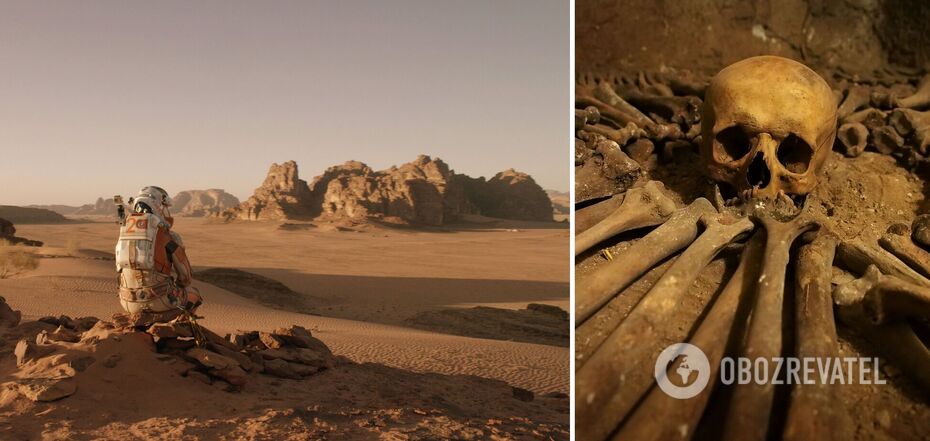News
Death is just the beginning: what happens to a person who dies on a mission to Mars
Although death remains an extremely tragic event for people, in a sense it has become an everyday occurrence that everyone will face one way or another. But this is true if we are talking about the death of a person on Earth. When it comes to death in space or on other planets, it's hard to imagine how much more complicated things are.
In an article for The Conversation, Emmanuel Urquieta, a professor of space and emergency medicine at Baylor College of Medicine (USA), spoke about how things will work in the era of space travel.
He notes that there is no doubt that sending people into space is an extremely difficult and dangerous business, and therefore it is necessary to develop scenarios in case of death or loss of life of crew members.
Since the 1960s, when humanity began to explore space, 20 people have been officially reported dead - 14 in the NASA space shuttle tragedies of 1986 and 2003, three astronauts died during the Soyuz 11 mission in 1971, and three more astronauts died in a fire on the Apollo 1 launch pad in 1967.
Urquieta notes that given the complexity of human spaceflight, "it's actually surprising how few people have died so far.
But humanity is preparing to send people to the moon again in the coming years, and to send a mission to Mars by the end of the decade, and commercial spaceflight is also becoming routine, so this all makes us think about what happens to the body when someone dies in space.
As the professor explains, if someone were to die during a mission in low Earth orbit-for example, aboard the International Space Station-the crew could return the body to Earth in a capsule within hours.
If the death occurred during a mission on the Moon, the body could be returned to Earth in a few days. According to the scientist, NASA has detailed protocols for such cases.
But a completely different situation will arise if someone dies during a 9-month trip to Mars, which is almost 483 million kilometers away!
"In that case, the crew probably won't be able to turn around and go back. Instead, the body will probably return to Earth with the crew at the end of the mission, which will happen in a few years," the professor believes.
According to him, all this time the body would most likely have to be stored in a separate chamber or a special bag. The constant temperature and humidity on the spacecraft would theoretically help preserve the body.
However, Urquieta notes, things get more complicated if someone goes into outer space without a spacesuit, or to the surface of the planet.
"The astronaut would die almost instantly. The loss of pressure and the effects of the space vacuum would make it impossible to breathe, and the blood and other body fluids would boil," the professor emphasizes.
Moreover, death on the Moon and Mars would be almost the same: our satellite has no atmosphere, and the red planet has a very thin atmosphere that lacks oxygen. So the result would be similar to spacewalking: suffocation and blood boiling.
The professor also explains that in the event of death on Mars, neither burial nor cremation is out of the question.
"Cremation is undesirable; it requires too much energy that the surviving crew needs for other purposes. Burial is not a good idea either. Bacteria and other organisms from the body can contaminate the Martian surface," the scientist explained.
So, according to him, "most likely" the crew will keep the body in a special bag until it can be returned to Earth.
Earlier, OBOZREVATEL also talked about the scientists' forecast of when people will be able to colonize Mars and other planets.
Subscribe to OBOZREVATEL' s Telegram and Viberchannels to stay up to date with the latest developments.



























